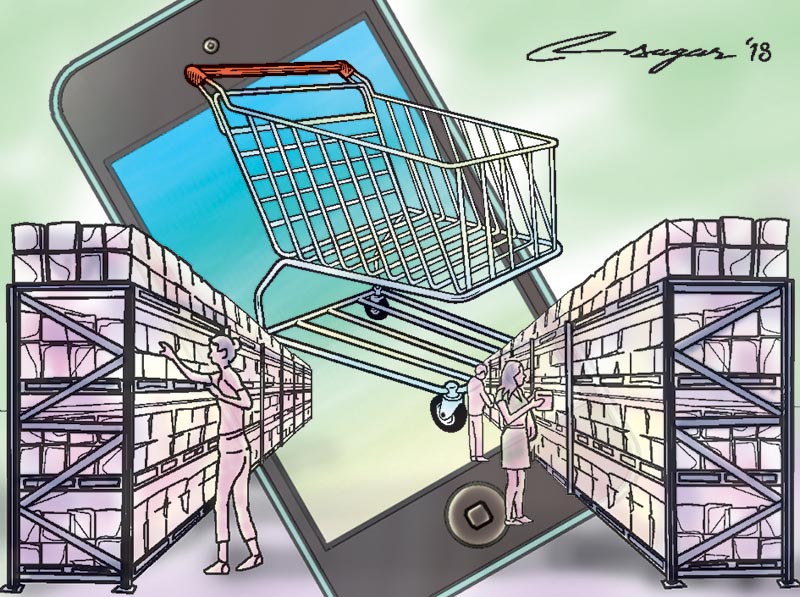Govt starts process of bringing e-commerce under regulation
Kathmandu, June 8
With the number of complaints related to fraud rising against e-commerce websites and companies, the government has started the process to draft necessary laws to govern such sites and firms.
Netra Prasad Subedi, director general of Department of Commerce, Supply and Consumer Protection Management (DoCSCPM), said they will soon formulate e-commerce laws with an aim to make online businesses competitive, consumer-friendly and accountable.
He added that the department is drafting consumer-friendly laws and taking suggestions from concerned stakeholders for the purpose keeping in mind that online businesses have been flourishing even in the absence of any legal basis and the number of complaints against such businesses has been increasing.
For instance, a complaint had been lodged at the DoCSPM in the last week of April alleging that Daraz and Sastodeal had committed fraud. Such complaints have been filed against 15 online trading firms and investigation has started against them, Subedi informed.
“Although online business is booming, the legal framework to regulate it has not yet been developed.
Moreover, consumers have also been complaining that online businesses get away with just a slap on the wrist due to lack of necessary and stringent rules,” he added.
Since the government imposed a nationwide lockdown to stem the spread of the COVID-19 contagion, the online shopping trend has increased massively in the market. Besides daily essentials, even goods such as gold jewellery, clothing items, watches, glasses and household items, among others, are being traded through online trading and social media platforms.
Subsequently, in recent days, the number of complaints is rising alleging that the rights of consumers are being violated as no action has been taken on the complaints that have been lodged with the department.
“In the course of drafting a legal framework, we have conducted and organised an audio-visual discussion with the concerned bodies, stakeholders and media personnel for necessary input,”
Subedi said. “Most of the participants in the discussion stressed on the need for strict legal provisions as goods available online were not of the same quality and measurement as displayed on the websites,” he informed, adding customers are being overcharged for cheap products.
Most of the complaints state that consumers do not even get to see the goods at the time of delivery, do not even know how to pay and online traders who act as intermediaries do not even pay attention to bargaining, Subedi said, adding, there is no facility to return or exchange the goods once they have been bought and value added tax bills are not being provided.
The right of every customer to be informed about the quality of goods, details, price, among others, and compensation that customers can get from the use of goods or services bought online that are not as per quality stated on the website are being included in the law, Subedi stated.
He also said that if any online trader is found guilty of violating the rights of the consumers then there will be a provision to penalise them. Similarly, the proposed draft also emphasises on the security of personal information and details.
A version of this article appears in e-paper on June 9, 2020, of The Himalayan Time






